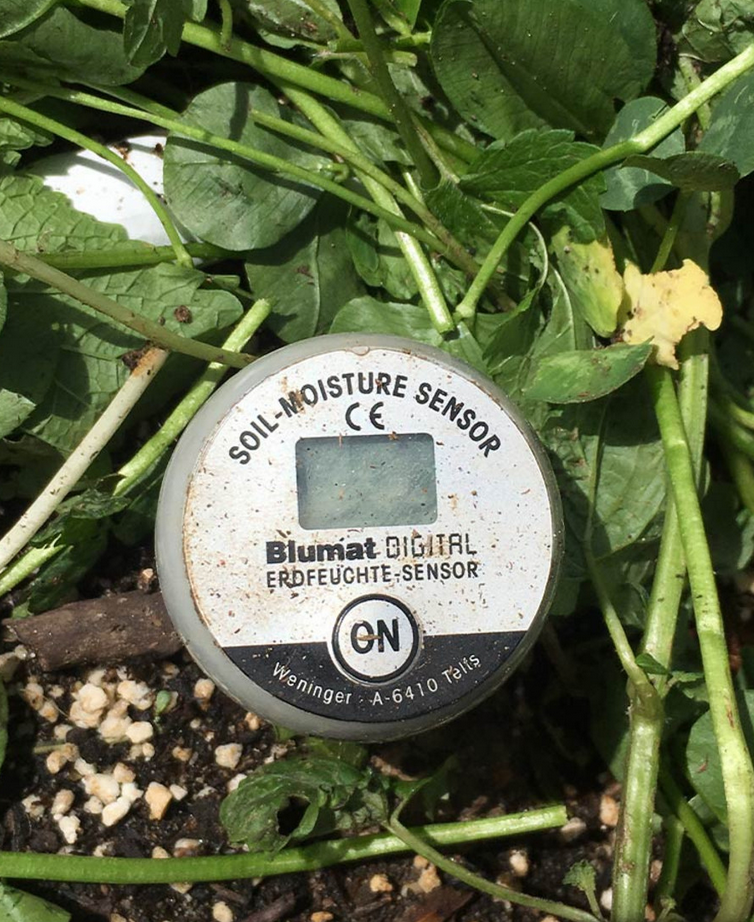Exactly How a Moisture Meter Can Assist You Preserve Ideal Conditions in Your Home or Office
Wiki Article
The Ultimate Overview to Wetness Meters: A Comprehensive Summary and Just How They Can Conserve You Money
Wetness meters offer as vital devices in identifying and checking moisture material in products, aiding in avoiding pricey damages and making certain the high quality of products. Understanding the nuances of various kinds of moisture meters, their applications, and the possible cost-saving benefits they provide can be a game-changer for organizations and professionals alike.Kinds of Wetness Meters
One typical type is the pin-type moisture meter, which determines the electric resistance between two pins inserted into a material. Pinless moisture meters, on the various other hand, usage electromagnetic sensing unit plates to check a larger area without creating damage to the product's surface area.
Infrared dampness meters determine the thermal properties of a material to establish its moisture content non-invasively, making them beneficial for applications where pin or pinless meters might not be ideal. Comprehending the various types of moisture meters offered can help industries pick the most suitable tool for their particular moisture measurement needs.

Benefits of Utilizing Moisture Meters
Dampness meters use indispensable advantages in properly assessing and checking moisture degrees in varied materials and environments. One of the key advantages of making use of dampness meters is the avoidance of potential damage created by excess wetness.
Moreover, utilizing wetness meters can cause enhanced energy performance. By determining areas with high dampness levels, such as leakages or poor insulation, changes can be made to boost power preservation and decrease energy costs. In farming setups, dampness meters play a critical duty in optimizing crop returns by enabling farmers to check soil dampness levels and make educated irrigation choices. In general, the advantages of utilizing wetness meters span throughout numerous industries, giving cost-effective services and promoting much better quality control methods.
Exactly How to Pick the Right Moisture Meter
Choosing the ideal moisture meter includes taking into consideration key factors such as product compatibility, measurement array, and calibration precision. When choosing a moisture meter, it's important to make certain that the meter appropriates for the specific material you will certainly be screening. Different products have differing electrical homes that can impact dampness readings, so choosing a meter created for your product is important for accurate outcomes. Additionally, take into consideration the dimension variety of the dampness meter. Guarantee that the meter can identify dampness degrees within the variety needed for your applications. Calibration accuracy is an additional crucial element to remember. Select a dampness meter with reliable calibration to make certain precise and regular readings. Some meters may require periodic site calibration modifications, so comprehending the calibration procedure is very important. By thoroughly examining these elements, you can choose a moisture meter that fulfills your demands and gives exact wetness measurements for your tasks.Proper Techniques for Wetness Meter Use

Price Financial Savings Via Moisture Meter Applications
How can the strategic utilization of dampness meters lead to significant price here savings across different industries? In the farming industry, wetness meters aid in establishing the optimal time for collecting crops, preventing excess or over-drying moisture that can affect the final product's top quality.
Likewise, in building and construction, moisture meters aid avoid expensive damages by discovering dampness levels in structure products, such as wood or concrete, which can result in architectural issues if not dealt with promptly. By determining trouble locations at an early stage, professionals can take rehabilitative steps to stay clear of extensive repair work or substitutes, inevitably saving money and time.
Additionally, in the food handling sector, moisture meters are vital for checking product quality and making sure conformity with safety policies. By properly gauging dampness content in food items, suppliers can avoid wasting, maintain freshness, and minimize waste, causing substantial price financial savings. Overall, the tactical application of moisture meters is an important investment that can lead to significant expense decreases and enhanced efficiency throughout various industries.
Conclusion
In news conclusion, moisture meters are valuable devices for identifying and determining moisture degrees in various products. By utilizing the appropriate wetness meter and adhering to proper strategies, individuals can effectively stop costly damages created by excess moisture.Dampness meters serve as indispensable tools in identifying and keeping an eye on moisture content in materials, assisting in avoiding expensive problems and guaranteeing the top quality of items. Infrared moisture meters measure the thermal residential or commercial properties of a product to establish its moisture material non-invasively, making them beneficial for applications where pin or pinless meters might not be appropriate.Dampness meters supply indispensable benefits in properly assessing and keeping an eye on dampness levels in varied products and settings. In farming setups, moisture meters play an essential function in enhancing plant returns by making it possible for farmers to keep track of soil wetness levels and make notified irrigation choices.In conclusion, wetness meters are useful devices for gauging and detecting dampness levels in various products.
Report this wiki page